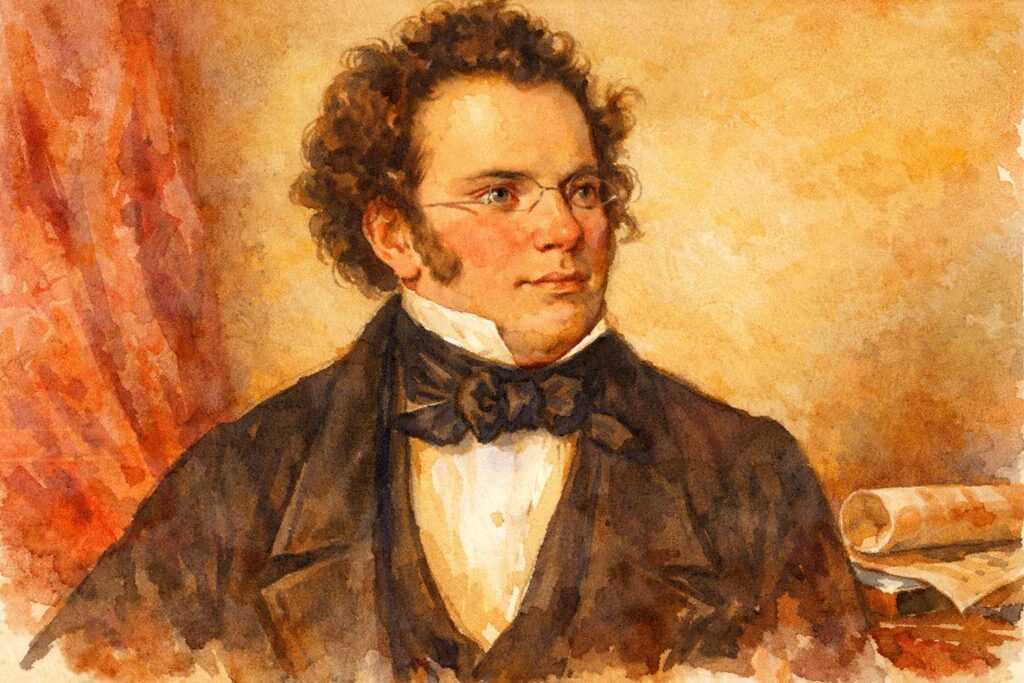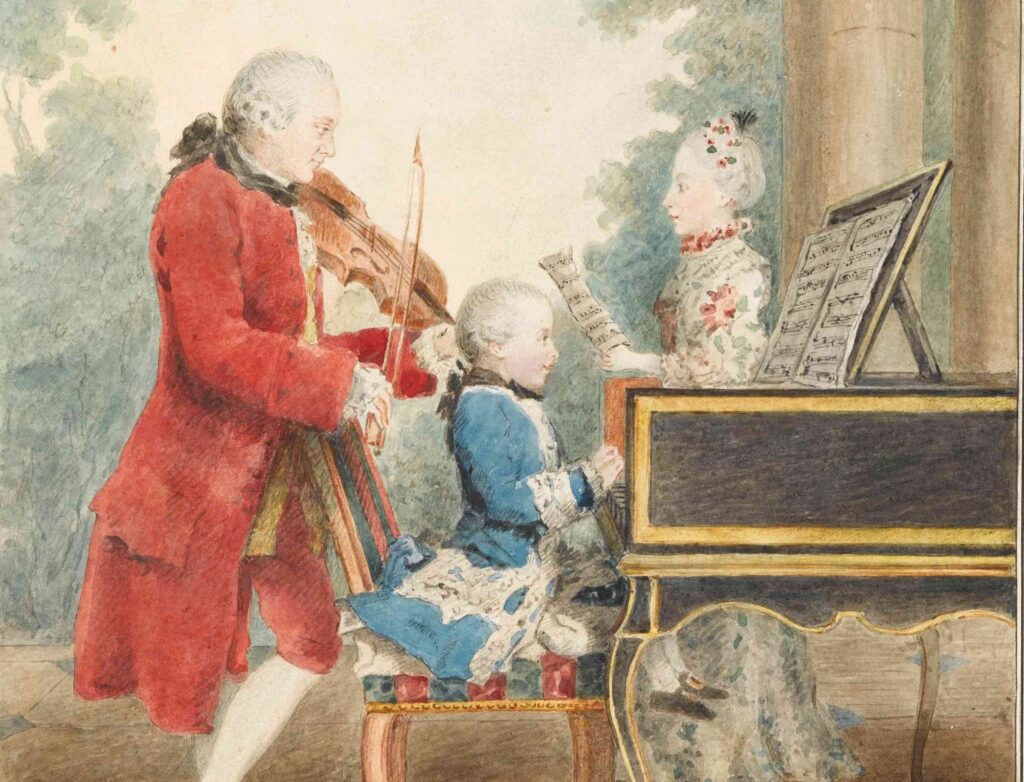Gustav Mahler is often regarded as one of the most profound and visionary composers of all time. His symphonies, grand in scale and deep in philosophical meaning, stand as monuments to the complexity of human existence. Mahler was a man who saw the world through the lens of suffering and beauty, chaos and order, life and inevitable death. His music captures these existential contrasts with an intensity that few composers have matched.
Early Life and Education
Gustav Mahler was born on July 7, 1860, in the small town of Kaliště, then part of the Austrian Empire (now in the Czech Republic). He was raised in the nearby town of Jihlava, where his exposure to different musical styles—folk songs, military marches, and Jewish liturgical music—would later shape his compositional voice.
From a young age, Mahler displayed extraordinary musical talent. By the time he was six, he was already composing, and at fifteen, he entered the Vienna Conservatory to study piano and composition. His education in Vienna, the heart of European musical culture, introduced him to the works of Beethoven, Schubert, Bruckner, and Wagner, who would deeply influence him. However, despite his promise as a pianist, Mahler quickly realized that his true passion lay in composition and conducting.

Mahler’s Music: A Symphony of Existentialism
Mahler’s symphonies are unlike any that came before them. They are massive in structure, emotionally vast, and deeply philosophical. In many ways, they are musical expressions of existential thought—wrestling with themes of life, suffering, joy, death, and the afterlife.
Mahler’s view of the world was dominated by pain and existential inevitability. Even when he introduces something seemingly joyful, such as a children’s song in his First Symphony, he twists it into something melancholic. This transformation is evident in the famous Frère Jacques theme, which he turns into a haunting funeral march by shifting it into a minor key and surrounding it with unsettling harmonies.
His symphonies often depict a battle between hope and despair. They traverse vast emotional landscapes, moving from moments of tenderness to sudden eruptions of violence. Perhaps the most chilling example of Mahler’s ability to foresee human tragedy is in his Ninth Symphony, where he seemingly predicts the horrors of the 20th century—just a few years before World War I shattered Europe.
Influences on Mahler
Mahler’s music was shaped by a variety of influences, both personal and artistic.
Composers and Musical Influences
Mahler admired and was influenced by many composers, particularly:
- Richard Wagner – The dramatic intensity and orchestral grandeur of Wagner’s operas left a deep impression on Mahler.
- Ludwig van Beethoven – Mahler saw Beethoven’s symphonies, particularly the Ninth, as the pinnacle of human expression.
- Anton Bruckner – Mahler was deeply inspired by Bruckner’s monumental symphonies, although he sought greater emotional immediacy.
- Johann Sebastian Bach – Mahler’s counterpoint and structure owe much to the polyphony of Bach.
- Wolfgang Amadeus Mozart – It is said that on his death bed, Mahler muttered the name of Mozart just seconds before passing away.
Life Events
Mahler’s life was marked by tragedy and personal suffering, which inevitably found their way into his music.
- The deaths of many of his siblings at a young age deeply affected his outlook on life.
- His struggles as a Jewish composer in an often antisemitic Austria created professional and personal hardships.
- The death of his daughter Maria, at age four, was a devastating blow, leading him to compose Kindertotenlieder (Songs on the Death of Children).
Political and Social Climate
Mahler lived through a turbulent time in European history. He witnessed the decline of the Austro-Hungarian Empire, growing nationalism, and rising tensions that would soon lead to World War I. His music often reflects a sense of impending catastrophe, as if he sensed the coming destruction.
Mahler the conductor
Mahler was not only a composer but also one of the most formidable conductors of his time. His career as a conductor often overshadowed his work as a composer during his lifetime, as he held prestigious positions in some of the world’s leading opera houses and orchestras. He was a perfectionist, known for his intense rehearsals, innovative interpretations, and sometimes tyrannical demeanor on the podium.
His tenure at the Vienna Court Opera (1897–1907) was particularly significant, as he revolutionized operatic performance with his deep attention to detail and insistence on artistic integrity. However, Mahler’s Jewish heritage made him a target of antisemitic hostility in Austria, which contributed to his decision to leave Europe for the United States in 1907. He took up conducting posts at the Metropolitan Opera and later the New York Philharmonic, gaining international recognition but facing personal and professional struggles. The pressures of conducting, along with the emotional toll of his daughter’s death and his own failing health, deeply affected his music, particularly in his late symphonies. His time in America exposed him to new audiences and ideas, but he remained spiritually tied to the landscapes and traditions of Europe, which continued to shape his compositions until his final days.
Mahler’s Influence on Music and Later Composers
Mahler’s influence has been profound, shaping the works of later composers and conductors alike. Some of the most notable figures who were inspired by Mahler include:
- Arnold Schoenberg – Mahler’s emotional intensity and orchestration techniques influenced Schoenberg’s move toward atonality.
- Dmitri Shostakovich – His symphonies, particularly the later ones, share Mahler’s sense of despair and irony.
- Benjamin Britten – Mahler’s song cycles inspired Britten’s own vocal writing.
- Leonard Bernstein – Perhaps the most passionate advocate for Mahler in the 20th century, Bernstein helped to popularize Mahler’s symphonies worldwide.
- And also me, Arashk Azizi – The effect that Mahler and his symphonies have on my music and my world view is simply immense. i see him not just as a composer, but rather a philosopher.
A Journey Through Mahler’s Symphonies
Symphony No. 1 (“Titan”)
A grand, almost youthful work that juxtaposes heroic triumph with eerie sorrow. As previously mentioned, the famous Frère Jacques theme in minor creates a surreal, ghostly funeral march.
Symphony No. 2 (“Resurrection”)
One of Mahler’s most famous works, this symphony contemplates life after death, culminating in an overwhelming choral finale that seeks transcendence. Bernstein called it “the ultimate symphony about redemption.”
Symphony No. 3
At over 90 minutes, this is Mahler’s longest symphony. It explores nature, humanity, and the divine, featuring everything from folk tunes to a children’s choir.
Symphony No. 4
A lighter, more classical work, yet still containing Mahler’s signature irony and depth. The final movement presents a child’s vision of heaven, yet with unsettling undertones.
Symphony No. 5
Famous for its Adagietto, a deeply emotional love letter to his wife Alma. This symphony moves from despair to joy, ending in a triumphant finale.
Symphony No. 6 (“Tragic”)
Possibly Mahler’s most nihilistic symphony. The famous hammer blows symbolize fate striking down the hero, mirroring Mahler’s own later misfortunes.
Symphony No. 7
A mysterious, often puzzling work. Mahler called it his “night symphony,” full of eerie shadows and haunting imagery.
Symphony No. 8 (“Symphony of a Thousand”)
A massive choral symphony that blends sacred and secular texts in a grand vision of divine love.
Symphony No. 9
Mahler’s farewell to life. The symphony fades into silence, as if the composer is stepping beyond existence itself. Alban Berg remarked that “it is music coming from another world.”
Symphony No. 10 (unfinished)
Mahler left sketches of this symphony before his death. What remains is filled with sorrow and longing, a final testament to his genius.
The Importance of Mahler’s Music
Mahler’s symphonies stand as some of the greatest achievements in classical music. They contain the full scope of human emotion—hope, despair, love, suffering, and redemption. His ability to transform personal anguish into universal truth ensures his place among the greatest composers in history.
Final Thought
Mahler’s music, especially his symphonies, should not be listened to as mere entertainment. His music is philosophy—it requires research, deep thought, and reflection. It demands to be listened to, pondered over, and analyzed repeatedly. Just as one does not read Albert Camus or Nietzsche merely for entertainment, Mahler should not just be listened to simply for enjoyment, though his music can be entertaining as well and I’m not suggesting otherwise, but trying to convey the idea that his music is much much more than mere musical textures. Understanding and fully appreciating his work takes time, but the effort is profoundly rewarding.
#GustavMahler #MahlerSymphonies #ClassicalMusic #OrchestralMusic #SymphonicGenius #MusicPhilosophy #ExistentialMusic #Mahlerian #GreatComposers #RomanticEra #MusicHistory #Mahler9 #MahlerianProphecy #MahlerTheLastProphet #OrchestralMasterpiece #ComposerLife #MahlerFans #EpicSymphonies #MusicalGenius #MahlerForever







